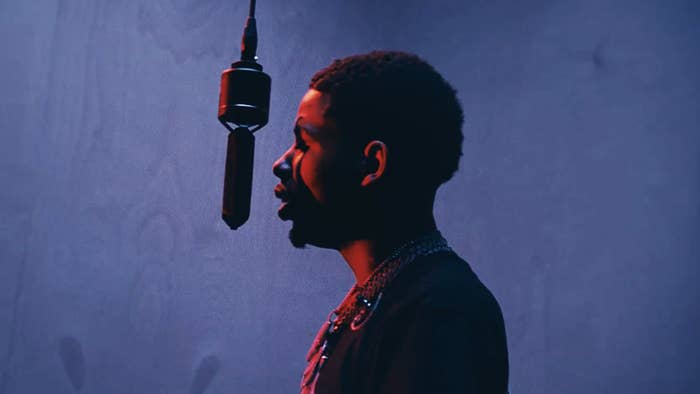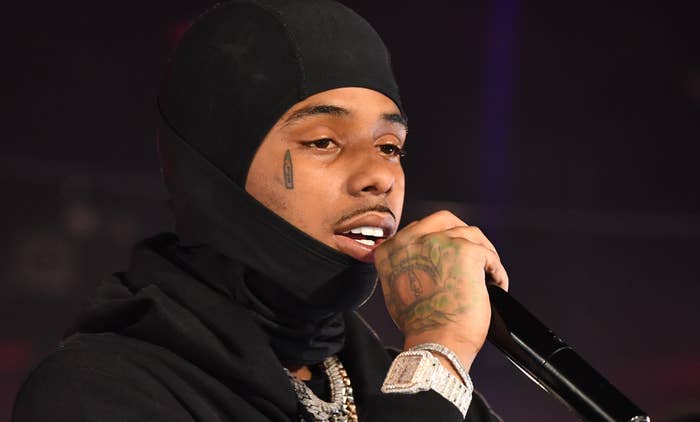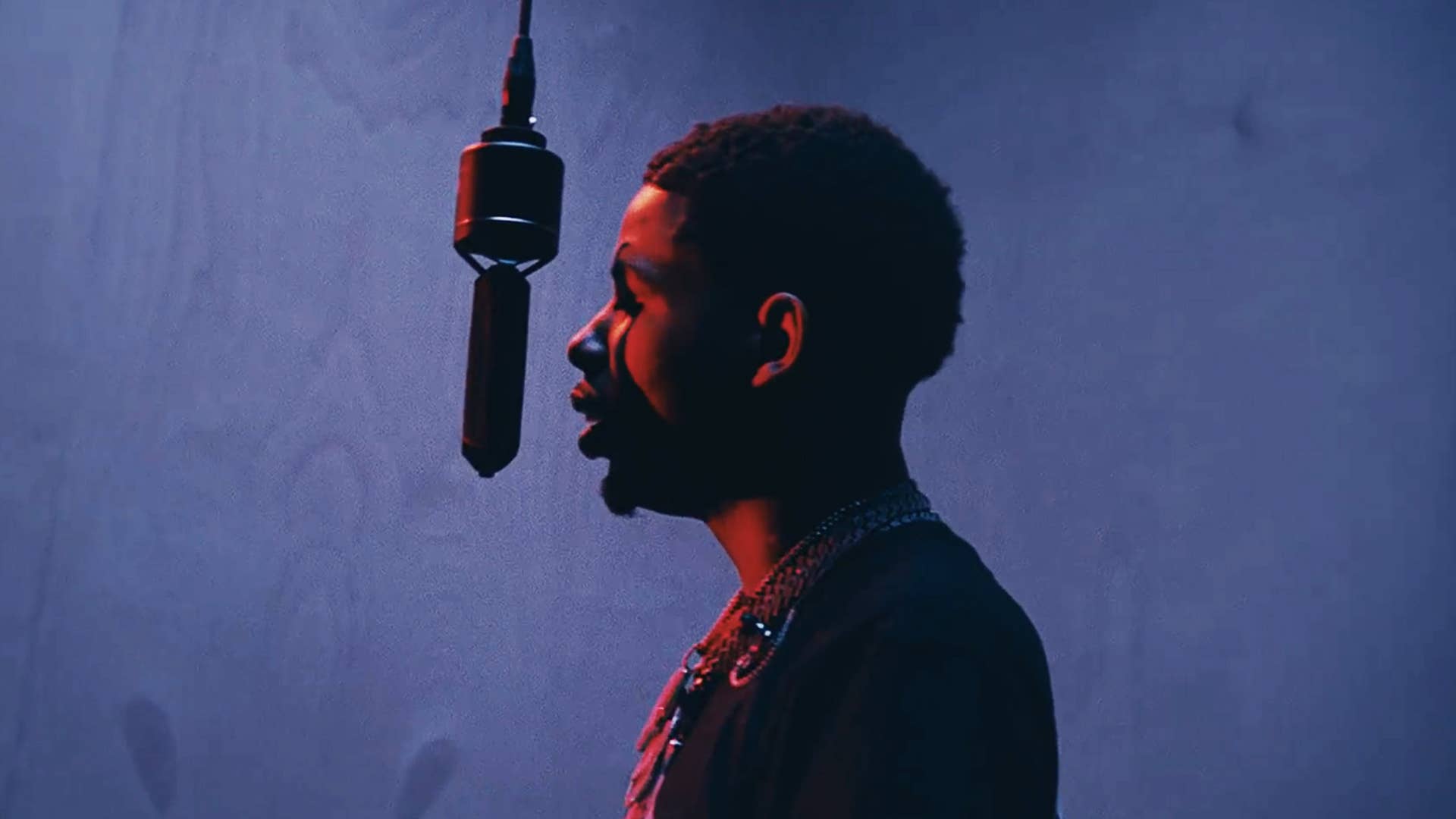
On Oct. 5, news broke that Pooh Shiesty will be going on trial for three charges related to a 2020 shooting in Miami. The Memphis artist, born Lontrell Denell Williams Jr, is facing 20 years each for charges of conspiracy to possess firearms in furtherance of violent crime, and Hobbs Act robbery conspiracy. He is also facing life for allegedly discharging a firearm in furtherance of a crime of violence.
The case was investigated as part of the federal government’s Project Safe Neighborhoods initiative, which, according to Attorney General Merrick B. Garland, aims to “bring together all levels of law enforcement and the communities they serve to reduce violent crime and make our neighborhoods safer for everyone.” PSN has been methodically trumping up gun possession cases to federal crimes in order to inflict harsher sentences on its targets. The government has invested over $2 billion into the gang and gun-targeting program since it was launched in 2001.
The Trump administration pumped money into the program in 2017 (with almost $500 million given to Chicago alone) in order to back up their “tough on crime” campaign promises.
Framing PSN as a crime reduction initiative makes it sound like a noble cause, but the program is a net negative for the affected communities. Critics of PSN contend that the program is following the predatory path of the “War on Drugs” with a “War on Guns” that doesn’t actually help the community, and disproportionately affects Black and Brown people who predominantly populate high-crime areas.
Anti-carceral advocates have been calling to defund the police in droves, but the justice system has instead responded with a program that will help federal agents lock people away even easier than they were before. The stigma against violent crimes may make people shrug off the severity of this tactic, but it’s one of the worst examples of the system’s obsession with streamlining the beast of mass incarceration.
The program has targeted several hip-hop artists lately, taking advantage of the criminalization of rap by weaponizing rap lyrics and rap videos against individuals and purported criminal organizations, which makes artists susceptible to being reeled into sprawling indictments nationwide.

Rappers are being incarcerated for violent crimes more than ever before, and now there’s a “tough on crime” program systematically using their art against them to justify longer sentences.
Though PSN is behind numerous gang indictments, there are instances of the initiative being used against individuals. In 2018, six Wichita, Kansas men were arrested after being filmed with guns and weed in a music video. Federal agents performed a search warrant on a Wichita home after the video was released, where they found 2.5 pounds of weed and 11 guns. De’Adrian Johnson was sentenced to 6 months in prison, while Dondre Broom and Shundell Barkus were sentenced to four years in prison. The case could have been handled on the state level, but it was taken federal in order to ensure the harshest sentence possible for the video.
The same happened in 2019 to a 25-year-old Florida man who brandished guns in a Hulio Da Don video. The press release for the arrest notes that other people were seen with guns, but only Richard Leroy Douglas, who was previously convicted of a felony, was charged and eventually sentenced to 41 months in federal prison. A YouTube comment on the still-published video lamented, “Caught an L and a case with this one.”
While some may hear about men being caught on camera with guns and surmise that they deserve to be punished, the bigger issue is the warehousing tactic of putting federal charges on cases that are typically handled on the state level. People convicted in PSN cases receive harsher sentences than they’d face for state charges. They also face mandatory minimum sentences, and are sent to prisons far away from their loved ones. People in state prison are eligible for probation and parole for gun cases, whereas people in the federal system receive a certain amount of days per year taken off their sentence for good behavior.
The government has targeted previously convicted, violent offenders because there’s less pushback toward them being punished, but others have called out the racially discriminatory aspect of targeting high-crime areas, which, as a result of systemic inequality, are Black and Brown areas. Low-income areas are historically deprived of basic needs and resources, which puts poor people in positions where they’re acting in survival mode, joining gangs, or otherwise committing violent crimes to provide for themselves. Instead of investing $2 billion into communities via housing, food, or job assistance, the government has invested in a program of punitive punishment that claims to keep neighborhoods safe, but more effectively warehouses Black and Brown people. PSN is helping them do this in a cruelly efficient fashion. Tactics like this are why the prison system is disproportionately Black.
Agencies are slow to consider violent rap lyrics and imagery as a symptom of growing up poor, but they’re quick to criminalize these expressions as grounds for incarceration. Rappers are being incarcerated for violent crimes more than ever before, and now there’s a “tough on crime” program systematically using their art against them to justify longer sentences.
University of Detroit Mercy Law School professor Bonita Gardner’s 2007 study framed PSN as a corollary of the War on Drugs, and also spoke to the racial disparity in the program’s convictions. She noted “people are being punished because they live in communities where there’s violent crime, which often is the reason they may carry guns. Then because they are in that position they’re punished more harshly than others.”
David Patton of the federal Public Defenders office told Idea Stream in 2019 that the harsher penalties “really address a factor that is shown to be least likely to impact crime rates, and that is the severity of the sentence.”
A 2021 study found that in Tampa “PSN was associated with a 24.4% raw reduction in violence and a 24.0% reduction in gun crime rates” over a six-year period, which the initiative shares as a beacon of its success. But critics are skeptical of how much the program has materially improved the communities that it aims to make safe.
Northwestern Law professors examined the program in a 2017 study of Chicago and they concluded that “several program components were associated with reductions in violence in the initial target areas,” but they also concluded that “these associations, however, are concentrated in the first few years of the intervention. We also examine the effect of PSN in several subsequent expansion areas and find no detectable effects. We suggest that the effects of PSN were diluted as the program expanded to larger areas of the city without an increase in funding or resources.”
In other words, the professors found that the violence reduction in certain Chicago communities occurred not because of PSN, but because of a focus on funding to help poor people. Violent crime didn’t substantially lower in parts of the city that weren’t also offered assistance, indicating that it was the resources that served the communities more than PSN.
This study was conducted before the massive uptick in PSN cases, so it’s unclear what effect the initiative has had on the community in the Trump years. It’s also worth noting that the high crime rhetoric came amid a national decline in violent crimes attributable to a nationwide push for criminal justice reforms.
Many criminal justice reform advocates and abolitionists agree that tough-on-crime policies have historically been less effective than mitigating the factors that lead to crime by providing more opportunity to people in low-income areas. PSN is one more devious method of warehousing Black people under the guise of looking out for Black people. And now, using rap music to do so deepens the racial implications.

